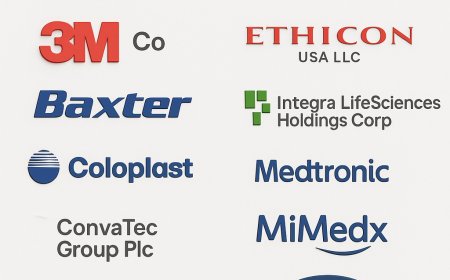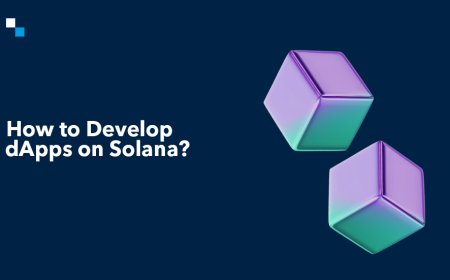How an AIOps Platform Development Company Can Revolutionize IT Operations?
Discover how partnering with an AIOps platform development company can transform IT operations through intelligent automation, real-time analytics, and proactive issue resolution.

In todays fast-paced digital landscape, IT operations have become the backbone of business functionality. But with the rising complexity of IT environments from multi-cloud architectures to microservices and real-time applications traditional approaches to monitoring, incident response, and system management are proving insufficient. This is where AIOps (Artificial Intelligence for IT Operations) steps in. Even more critical, partnering with an AIOps platform development company can be a game-changer for organizations aiming to scale efficiently and maintain high availability.
What is AIOps?
AIOps stands for Artificial Intelligence for IT Operations, a term coined by Gartner. It refers to the application of AI, machine learning (ML), and big data analytics to automate and improve IT operations. This includes event correlation, anomaly detection, predictive analytics, and root cause analysis all in real time.
AIOps platforms collect and analyze vast volumes of operational data from diverse sources (logs, metrics, traces, etc.) to proactively identify and resolve IT issues before they impact end-users.
The Need for AIOps in Modern IT Environments
Traditional IT monitoring tools are rule-based and reactive. They generate hundreds or thousands of alerts, many of which are false positives or low priority, overwhelming IT teams. Moreover, they lack contextual awareness.
Some key challenges modern IT teams face:
-
Alert Fatigue: Too many alerts with low signal-to-noise ratio.
-
Siloed Tools: Data is scattered across disparate systems.
-
Delayed Incident Response: Manual processes slow down resolution times.
-
Lack of Visibility: Difficulty in understanding complex interdependencies across systems.
-
Unpredictable Downtime: System failures that could have been avoided with better predictive analytics.
An AIOps solution addresses all these pain points, and a specialized AIOps platform development company ensures the solution is tailored, scalable, and integrated seamlessly with your existing stack.
What Does an AIOps Platform Development Company Do?
An AIOps development company builds customized platforms or integrates existing AIOps solutions for organizations. Their role includes:
1. Data Ingestion & Normalization
They design systems to aggregate and normalize data from a variety of sources like:
-
Logs (e.g., ELK Stack, Splunk)
-
Metrics (e.g., Prometheus, Datadog)
-
Traces (e.g., Jaeger, Zipkin)
-
Cloud APIs
-
Configuration tools and CI/CD pipelines
2. Intelligent Correlation & Root Cause Analysis
Through ML algorithms, they correlate events across systems to reduce noise and find the root cause of incidents faster. This leads to:
-
Fewer but more meaningful alerts
-
Faster mean time to detect (MTTD) and mean time to resolve (MTTR)
3. Predictive Analytics
By analyzing historical trends, an AIOps platform can predict potential failures or capacity issues, enabling teams to take action before problems arise.
4. Automation & Orchestration
Development companies integrate AIOps platforms with ITSM tools (like ServiceNow) and automation engines (like Ansible) to:
-
Auto-create or close tickets
-
Trigger automated scripts to resolve known issues
-
Reduce the need for manual intervention
5. Visualization & Insights
They design dashboards and reporting tools to give IT teams actionable insights into system health, performance trends, and anomaly patterns.
Key Benefits of Partnering with an AIOps Platform Development Company
1. Customization to Your Business Needs
Off-the-shelf solutions may not meet your specific operational complexities. A development company tailors the platform to your infrastructure, policies, and compliance needs.
2. Faster Time-to-Value
With expert guidance and pre-built integrations, these companies accelerate the deployment and ROI of AIOps implementations.
3. Enhanced Scalability
As your organization grows, so does your data volume and system complexity. A professionally built AIOps platform scales accordingly without performance degradation.
4. Seamless Integration
AIOps companies ensure tight integration with your existing monitoring tools, DevOps pipelines, ticketing systems, and cloud providers, resulting in a unified operational ecosystem.
5. Operational Cost Savings
By reducing downtime, automating routine tasks, and enhancing team productivity, businesses see significant cost reductions.
Use Cases Where AIOps Makes a Difference
Here are some real-world scenarios where AIOps platforms (especially custom-built ones) provide measurable impact:
1. E-commerce & Online Services
During high-traffic events (Black Friday, flash sales), AIOps helps detect performance bottlenecks or sudden traffic surges, triggering auto-scaling or caching strategies in real-time.
2. Financial Services
Banks and fintech companies use AIOps for anomaly detection in transaction logs, helping to prevent fraud and system downtime.
3. SaaS & Cloud Platforms
AIOps enables proactive monitoring across microservices, containers, and serverless components, identifying cascading failures before they affect customer experience.
4. Healthcare & Critical Infrastructure
Here, zero downtime is non-negotiable. AIOps enhances observability and predicts failures in systems where uptime is a matter of life and death.
Choosing the Right AIOps Platform Development Company
Not all vendors are created equal. Look for the following qualities when selecting your AIOps partner:
? Domain Expertise
They should understand your industry-specific challenges whether its retail, telecom, finance, or healthcare.
? AI/ML Competency
Ensure they have a solid foundation in artificial intelligence, especially in building models for anomaly detection, clustering, and natural language processing for incident logs.
? DevOps Integration
AIOps works best in environments with strong CI/CD and DevOps cultures. The company should be adept at integrating with DevOps tools like Jenkins, GitLab, Kubernetes, and Terraform.
? Proven Case Studies
Look for client success stories, particularly in reducing MTTD, improving uptime, or cutting down alert volumes.
? Security & Compliance
They should build platforms with built-in support for compliance standards such as GDPR, HIPAA, SOC 2, etc.
Future of AIOps: What Lies Ahead?
As AI and IT operations continue to evolve, heres how AIOps is expected to grow:
-
Self-Healing Systems: Systems that automatically detect, diagnose, and fix themselves.
-
Contextual AI: Enhanced use of NLP to understand and resolve tickets using past data and context.
-
Edge AIOps: Applying AIOps at the edge (e.g., IoT, retail PoS) for real-time decision-making close to the data source.
-
Democratized AIOps: No-code platforms enabling operations teams to train and tweak models without a data science background.
In this scenario, companies that have already built a strong AIOps foundation with expert partners will be at a strategic advantage.
Conclusion
In the face of increasing IT complexity, downtime risks, and the need for real-time responsiveness, AIOps is not a luxury its a necessity. A reliable AIOps platform development company doesnt just implement tools; it builds an intelligent, scalable, and proactive IT ecosystem. By transforming raw operational data into actionable insights and automation, they help organizations move from reactive firefighting to proactive innovation.
Whether you're a digital-native company or undergoing a transformation, now is the time to explore how an AIOps partner can future-proof your IT operations.


































